Magical girl manga such as Sailor Moon have gone on to inspire a plethora of magical girl comics that feature creative storytelling and diverse characters. Many of these comics can be found on Webtoon and Tapas, with some even adapted into print as graphic novels.
Check out these fun and magical comics below.
Magical Boy
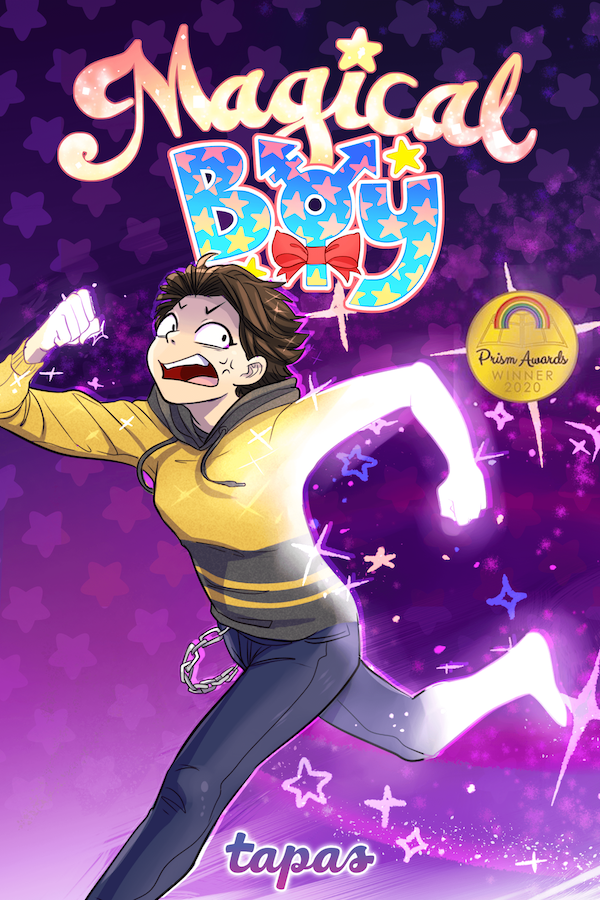
Writer: The Kao
Artist: The Kao
Original Creator: The Kao
Platform: Tapas
Available to read online and as a graphic novel, Magical Boy tells the story of a teenage trans boy named Max who discovers he is descended from a long line of magical girls. His mother, Eileen, wants Max to be the “magical girl” she used to be, but Max doesn’t want to. When a fearsome and dark enemy makes their presence known, Max must find a way to embrace his own innate magic without compromising who he is.
Featuring a mix of comedy and drama and true-to-life characters, this comic tells a coming-of-age experience that will resonate with transgender and nonbinary readers. It also pokes fun at magical girl aesthetics while giving them a fun twist inspired by gender identity and expression.
Hovergirls
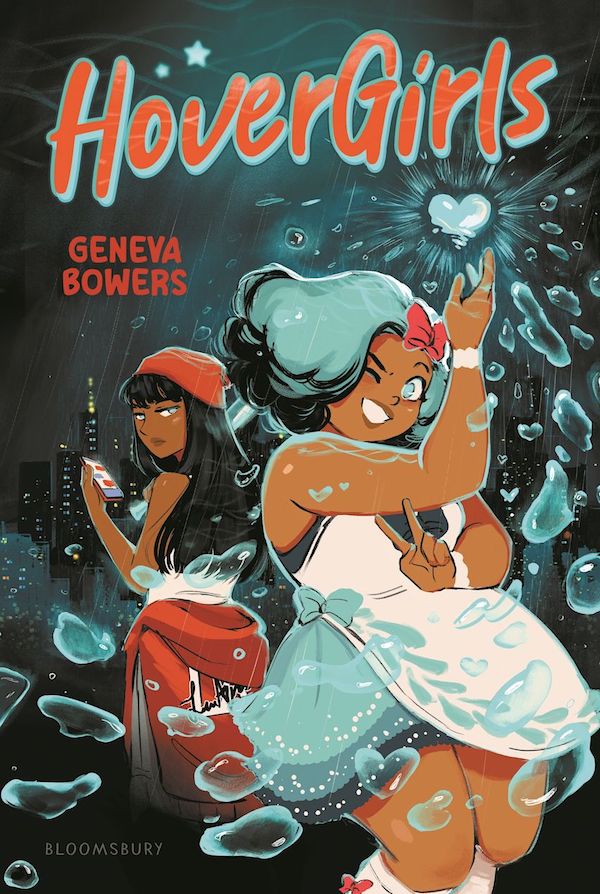
Writer: Geneva Bowers
Artist: Geneva Bowers
Original Creator: Geneva Bowers
Platform: WEBTOON
Available in print and online, Hovergirls features gorgeous artwork and magical girl shenanigans in a modern-day setting. It is about Jalissa and Kim Vasquez, two cousins who move to the city of Los Aguaceros together. Kim dreams of becoming a famous model and fashion designer, while Jalissa is just trying to hold herself together after a breakdown the year before.
When a curious incident on the beach leaves them with supernatural powers and monsters start attacking the city, Kim decides that using their powers to stop them is the perfect way for them to become famous. But being heroes isn’t as easy as it seems–and Los Aguaceros is in more danger than they imagine.
A Magical Girl’s Guide To Adulting
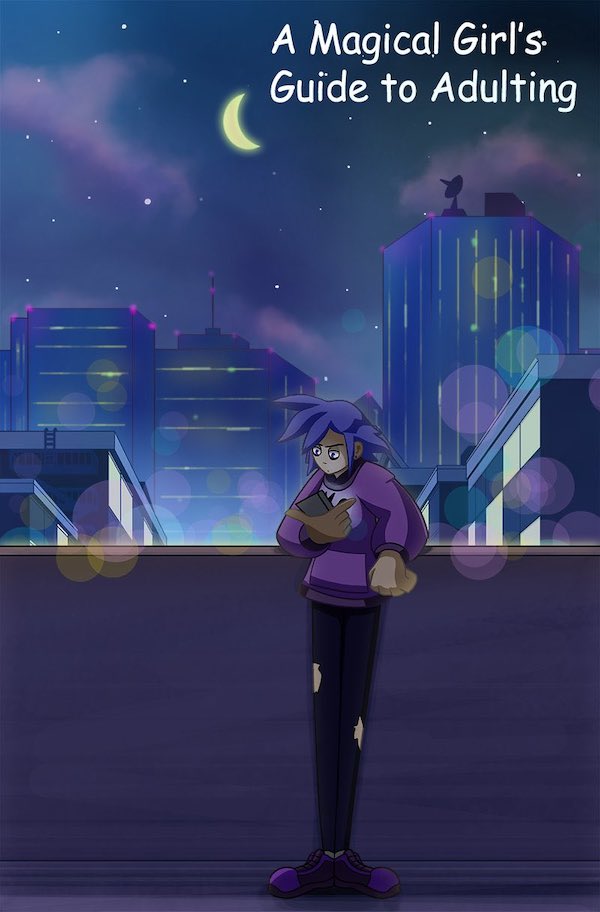
Writer: Patrick McCabe
Artist: Patrick McCabe
Original Creator: Patrick McCabe
Platform: WEBTOON
This is a slice of life comedy that tells what happens when a magical girl and those around them become adults. At 14, Molly saved the world. But what is a magical girl to do after she literally peaked in Middle School? Follow the harrowing adventures of 27 year old Molly as she fumbles through relationships, jobs, and depression while facing her most daunting challenge yet: being an adult.
This particular comic is down-to-earth due to the fact that it shows how complicated relationships and personal identity can be as an adult. People drift apart and stumble back into each other’s lives. When your self worth revolves around what you did for others, you forget who you can be on your own. Yet this comic shows that as messy as you and relationships can be, you don’t have to deal with it alone.
Magical Boy Troubles
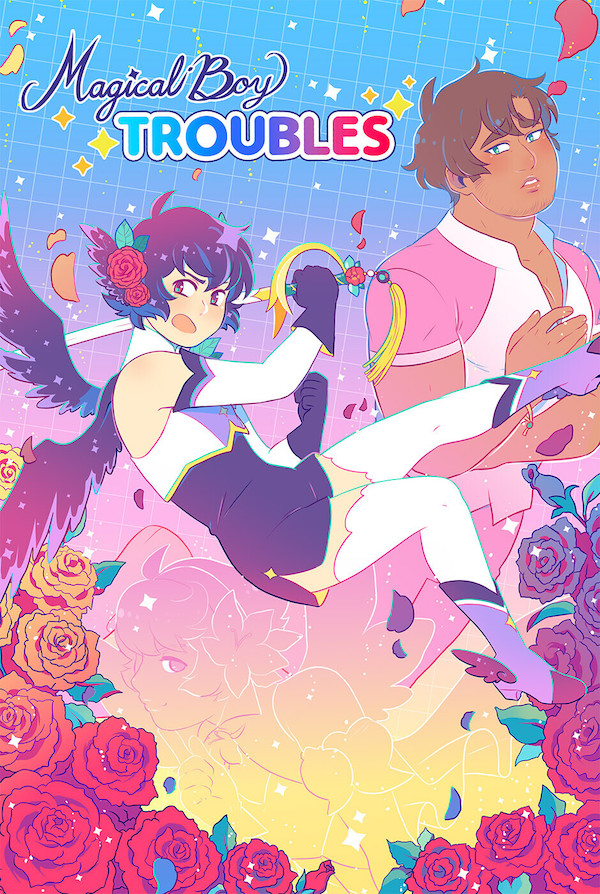
Writer: Red_Fran
Artist: Red_Fran
Original Creator: Red_Fran
Platform: WEBTOON
This comic stars a magical boy named Kikyou and his boyfriend, Juan. Juan feels that Kikyou is taking on too much as a magical boy. However, since Juan doesn’t have magical abilities, he must figure out how to use his own brand of magic to help Kikyou.
This leads to a misadventure that results in Juan and Kiykou growing as individuals and as a couple. Featuring cute-as-heck artwork as well as male magical girl fans becoming magical boys, this comic is a must-read.
Vampire Magicka

Writer: Bryan Golden
Artist: Bryan Golden
Original Creator: Bryan Golden
Platform: WEBTOON
Take a dash of horror and a scoop of magical girl sparkles and you have this Webtoon comic. Some people have likened the art style to something from the doll line Monster High, and they aren’t too far off.
Vampire Magicka is about a vampire boy named Visare who loves magical girls. After a bat named Drago crashes into his house, Visare gains a magic pendant and learns his sister Viorica is missing. Together, Visare and Drago go search for her and meet colorful characters along the way.
Magical Mom
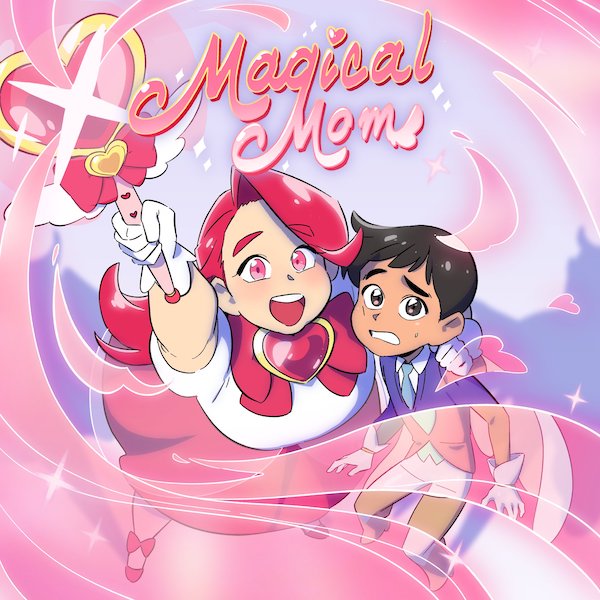
Writer: Prinn Thongcharoen
Artist: Chunney
Original Creator: Prinn Thongcharoen
Platform: WEBTOON
Life is not easy for middle schooler Sara, more so when his mother is a retired magical girl. When evil forces reel his mother back into action, Sara soon learns that there’s more to being a warrior of love than looking cute in a skirt.
There’s not many comics that focus on adult magical girls, let alone parents so this comic is a special one. Focusing on motherhood as well as the child’s idolization of a parent, it takes the sparkles and magic of the magical girl genre and gives it a fresh perspective. If you liked this comic, check out the short film that originally inspired it.
Magical 12th Graders

Writer: Seri
Artist: Biwan
Original Creator: Seri/Biwan
Localization: Naver
Platform: WEBTOON
Magical Twelfth Graders stars a high school senior named Yeorum Han. Traumatized by the death of her older sister Gyeowul, she is going through the motions trying to prepare for exams.
One day, she witnesses her male biology teacher transform into a magical girl and receives a pin to do the same. When she learns the pin is the same one her older sister used before she died, Yeorum decides to solve the mystery behind her sister’s death.
A surreal and sometimes dark WEBTOON, this story might not be for everyone. However, those who stick with it will find unexpected humor and honest commentary on the pressures that Korean high school students face during exam time and what is worth sacrificing for its rewards.
Emo Princess Warrior
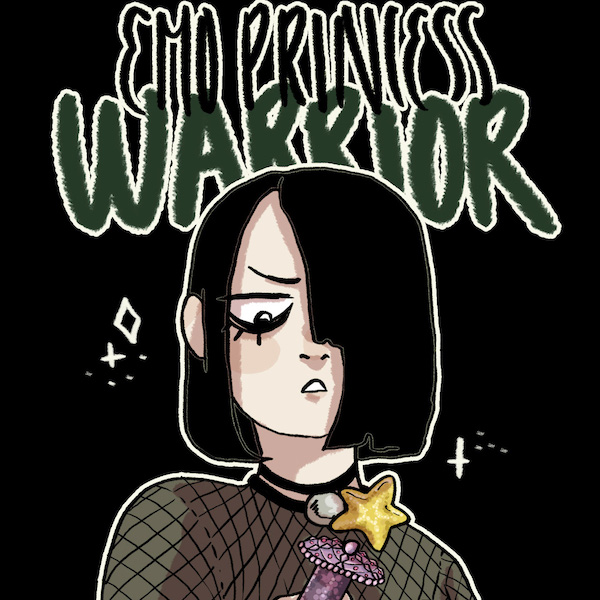
Writer: kcal.art
Artist: kcal.art
Original Creator: k.cal.art
Platform: WEBTOON
Helen Huang aka Ele is an emo girl dressed in all black who happens to stumble on a magic wand. When she takes up the wand, she literally finds herself falling into a world of magic princesses in order to find the wand’s original owner.
This particular Webtoon is very fun, with a great cast of characters. It is hilarious to see Ele react to all the sparkly magical stuff that she somewhat hates. Ele is also compassionate towards the magical princesses and it is nice to see her gradually bond with them while learning the ropes as a magical girl. If you like the Webtoon, check out the theme song for it too!
Apricot Cookie(s)
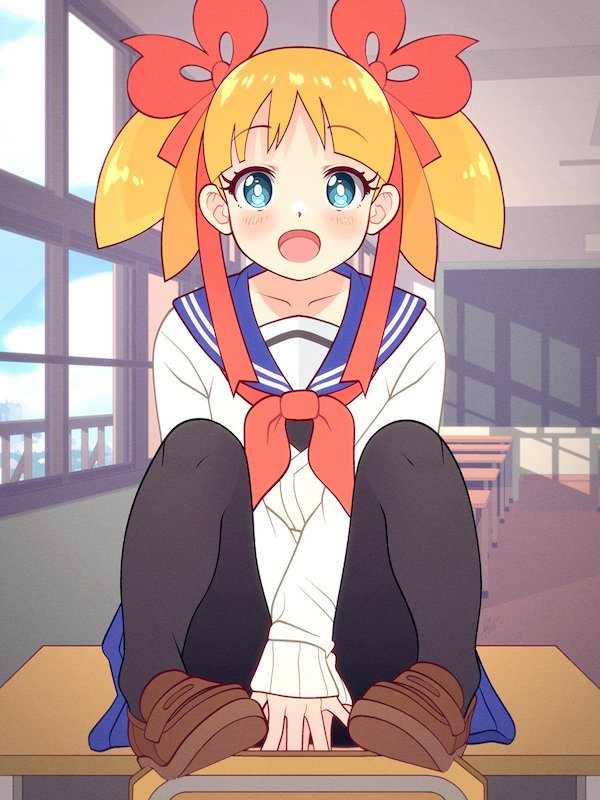
Writer: Louis Lloyd-Judson
Artist: Louis Lloyd-Judson
Original Creator: Louis Lloyd-Judson
Platform: WEBTOON, Tapas
In an alternate modern day version of Japan, every girl is a magical girl except one: Apricot Cookie. Her life, loves, and laundry are considerably ordinary, especially compared to the world around her. Yet surely, there is some way for her to be magical, even if is not how she expects.
This comic is a lighthearted deconstruction and parody of a magical girl anime while also being its own thing. For example, the magical girls are called the “Dainty Defenders of Light.” It can also be read from right-to-left like with traditional manga or left-to-right via the comic’s website.
Magical Girl Academe
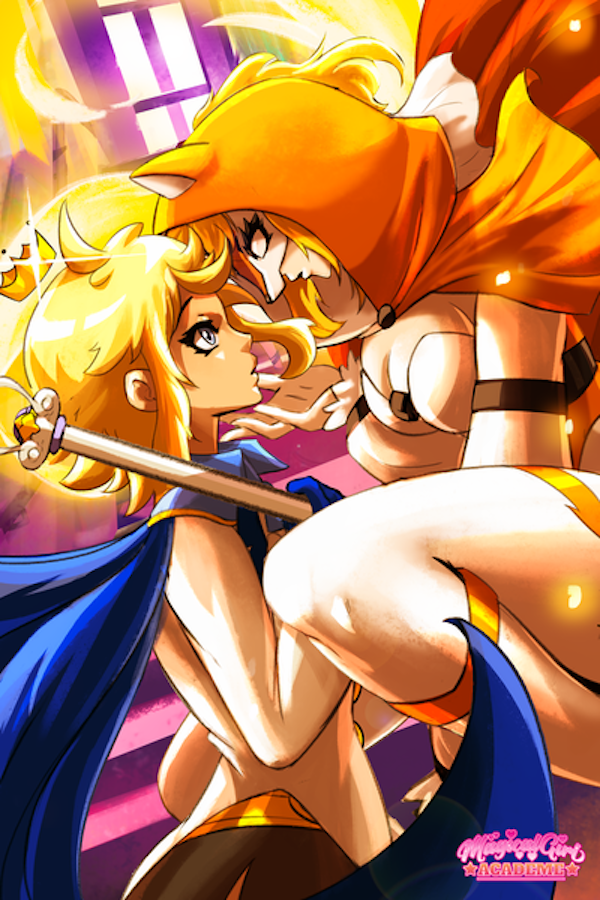
Writer: War Bunny
Artist: War Bunny
Original Creator: War Bunny
Platform: WEBTOON
An avid fan of Magical Girls, Tori Murakami is one day given the opportunity to become just like the heroes she looks up to. Brave and noble, yet reckless and inexperienced, she battles the forces of negativity while trying to keep up with her new powers. Follow Tori as she delves into the world of Magical Girls…and maybe even fall for a few along the way.
With vibrant artwork, fantastic transformation outfits, and lots of girls flirting with each other, this webcomic is one of the gayest takes on magical girls. In addition to the webcomic, there is also additional content on the comic’s YouTube channel, such as a neat violin-techno theme song done by Riegel Theatre.


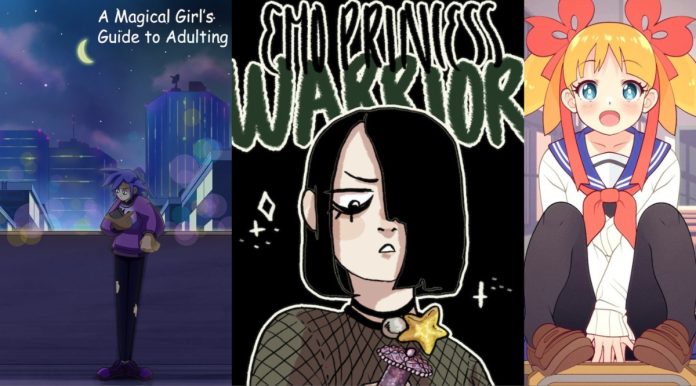
0 Comments